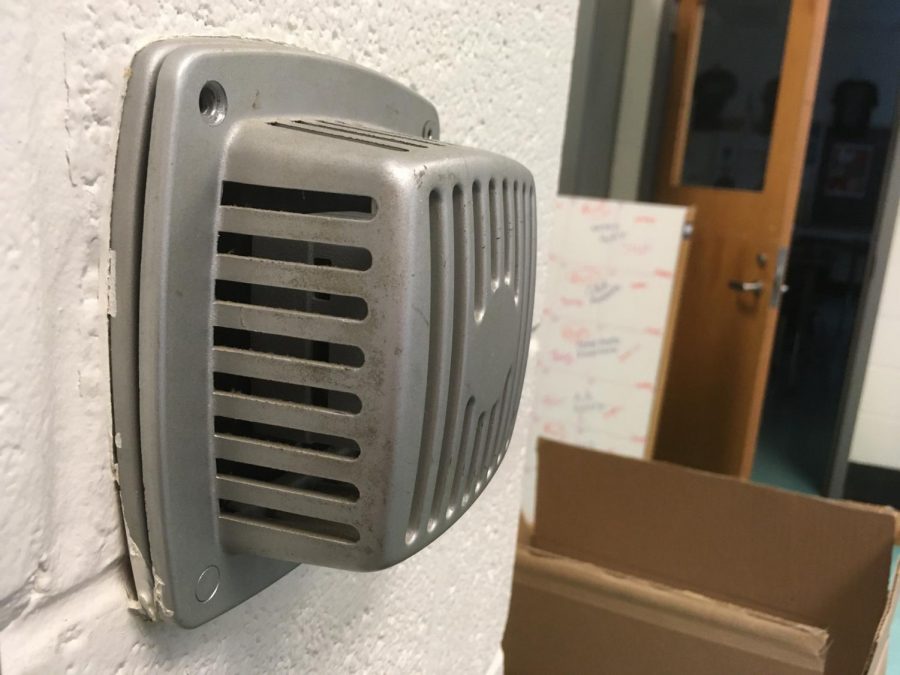Uncovering the origins of the mysterious hissing noise
The story behind the gray hissing boxes
For months, a hissing sound that comes from gray boxes has plagued Whitman classrooms. For many students and staff members, the reasons behind the sound have remained a mystery. Until now.
February 26, 2020
Almost every day since the end of first semester, a loud hissing noise greets senior Liam Gilbert-Lawrence when he arrives to his first period Spanish class. Throughout the period, the hiss sporadically returns, interrupting his teacher mid-sentence.
“At the beginning, the noise was very strange; it threw everyone off,” Gilbert-Lawrence said. “Now, it doesn’t really affect me anymore because I hear it in three of my classes.”
In an informal Black & White survey of 67 students, 50 reported hearing the hissing sound repeatedly in at least one of their classes.
AP Environmental Science teacher Mira Chung has been hearing the thermostat hiss for a while in her third floor classroom, she said.
“I’ve gotten used to it,” Chung said. “Sometimes kids turn their heads and look over at the thermostat, but it’s not really a big deal.”
Though students and staff are mostly used to the sound, the source of the mysterious hissing remains shrouded in mystery.
“I have no idea what that hissing noise is,” junior Althea Dulany said. “People joke about the sound probably being some sort of funny gas or something. It’s not disruptive — just kind of odd.”
But there’s a simple explanation for the sound. Our classrooms use pneumatic thermostats — devices that are connected to a greater overall heating system. Pneumatic thermostats have strips that bend back and forth when there’s a change in the temperature, according to building manager Frank Gross. As these strips bend, they release pressure inside tubes filled with compressed air. When that pressure is released, the tubes hiss.
Gross said that he or other building services staff will fix specific thermostats at teachers’ requests.









